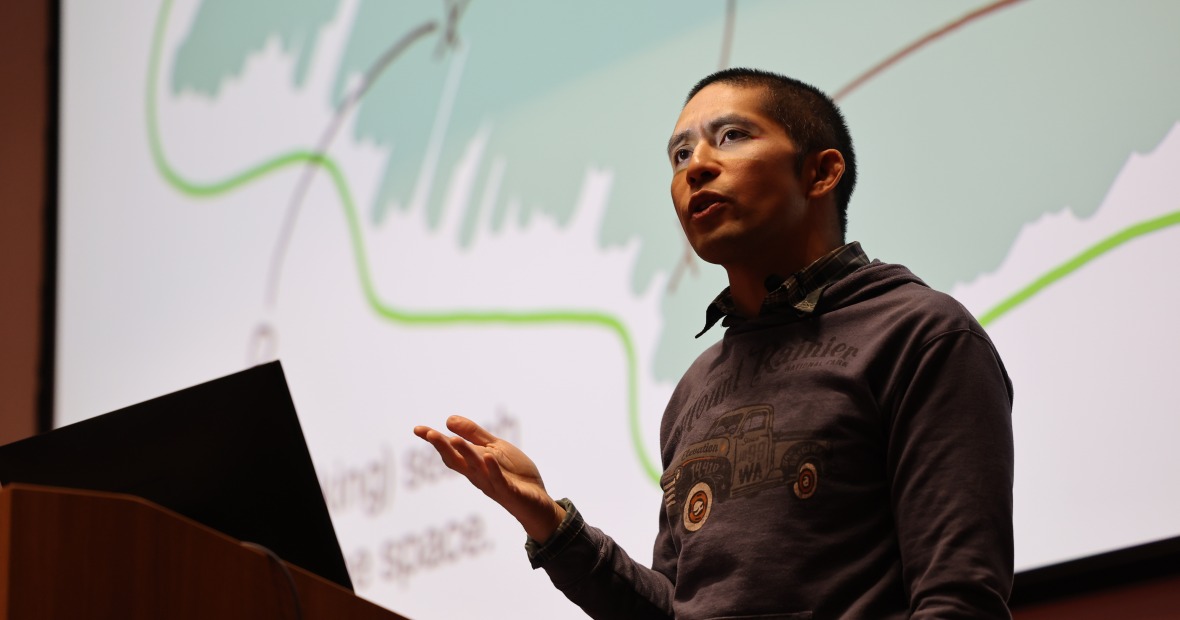Osera, Honored Grinnell Lecturer, on Automation and Pedagogy with Soul
Peter-Michael Osera’s mission is to help people harness the power of computation in its many forms.
As the 2024 Honored Grinnell Lecturer, Osera, assistant professor of computer science, spoke to an audience of his colleagues to demystify program “synthesis” — that is, the automated generation of programming code to accomplish a certain task.
“Synthesis can feel like magic, but I think it’s important that we take responsibility to understand what’s going on there, and that we reflect on how to respond, especially as educators,” suggested Osera.
Drawing on his background in the foundations and development of programming tools, Osera shed light on the mechanisms driving simple program synthesis and large language models like ChatGPT. During the lecture, he outlined the perils of these large language models, programs that he argues are only as good as the data they are fed.
The limitations of generative software mean that formal methods of programming — those that can guarantee a software’s accuracy — are still necessary. So is teaching those methods, Osera argues.
But how do you teach programming in a landscape drastically changed by artificial intelligence, where students can instantly generate code instead of writing it themselves? Osera believes it requires emphasizing the soul of pedagogy.
“Now when we give students a programming problem, we need to ask, ‘what is the soul of this activity?’” said Osera. “And then we need to find the method of teaching and learning that captures that soul.”
More or less, the soul is an activity’s why, Osera explains. Capturing the soul means asking, what is the purpose of an educational activity, beyond arriving at an answer?
Identifying and articulating that soul, educators can ensure that students buy into the value of an assignment. Emphasizing soul ensures that students are not robbed of essential skills by the efficiency of automation. Rather, automation is used as a tool to enhance the learning process. “Really, this is just good pedagogy. That’s what we already do,” explained Osera.
About the Grinnell Lecture: The Grinnell Lecture is an annual celebration of faculty scholarship. The Grinnell Lecture recognizes a distinguished body of scholarly work, including artistic production and/or performance, that makes a significant contribution to one’s field or has a broad impact on the scholarly community.

